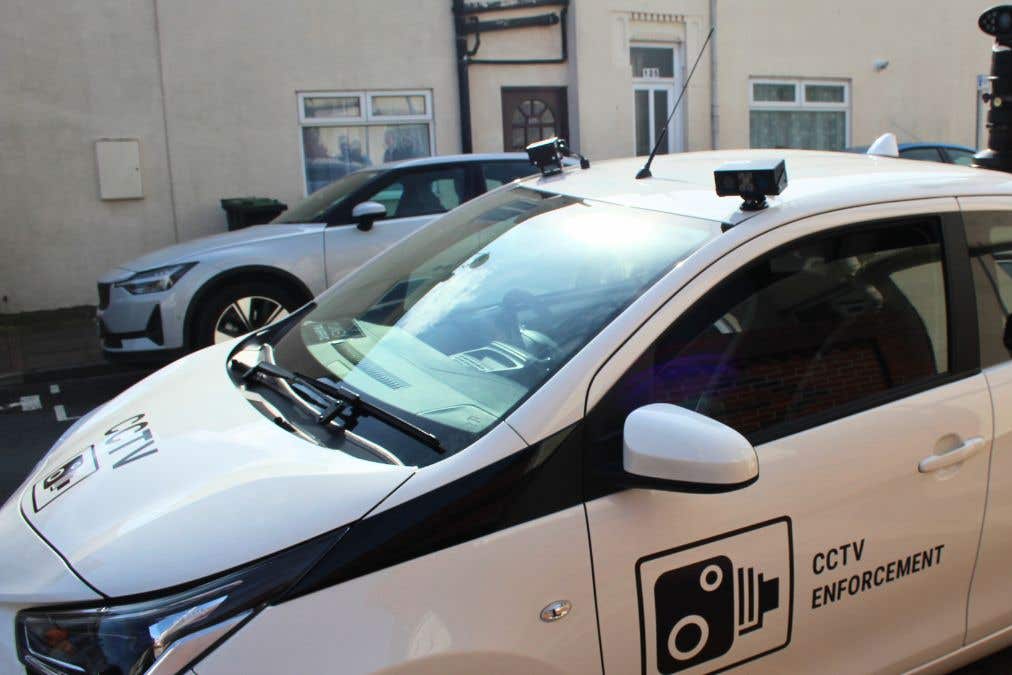Drivers face new fine threat from cameras catching cars parked without permits
Portsmouth City Council said it will deploy a car fitted with cameras to check the number plates of parked vehicles automatically.

Your support helps us to tell the story
From reproductive rights to climate change to Big Tech, The Independent is on the ground when the story is developing. Whether it's investigating the financials of Elon Musk's pro-Trump PAC or producing our latest documentary, 'The A Word', which shines a light on the American women fighting for reproductive rights, we know how important it is to parse out the facts from the messaging.
At such a critical moment in US history, we need reporters on the ground. Your donation allows us to keep sending journalists to speak to both sides of the story.
The Independent is trusted by Americans across the entire political spectrum. And unlike many other quality news outlets, we choose not to lock Americans out of our reporting and analysis with paywalls. We believe quality journalism should be available to everyone, paid for by those who can afford it.
Your support makes all the difference.Drivers face a new fine threat from cameras catching vehicles parked in residential areas without permits.
Portsmouth City Council said it will deploy a car fitted with cameras to check automatically the number plates of parked vehicles against a database of permit holders.
If a potential offence is detected, a traffic warden will be alerted and will assess the situation, issuing a penalty charge notice (PCN) if necessary.
Motoring research charity the RAC Foundation told the PA news agency councils must “resist the temptation” to see fining drivers as a way of easing budgetary pressures.
Traffic wardens traditionally walk along streets using handheld electronic devices to individually check whether parked vehicles have permits.
Portsmouth City Council said the new system will enable “a greater number of checks across a wider area in a significantly shorter timeframe”.
This will reduce the number of motorists “flouting the regulations” and lead to “spaces being more readily available for residents with valid permits”, it claimed.
PCNs issued by the council are £70, reduced to £35 if paid within 14 days.
The new car will also be used to identify non-payment of Vehicle Excise Duty.
It will be trialled from the summer in residential parking zones across Portsmouth.
Annual parking permit charges in the Hampshire city are £30 for a household’s first vehicle, £120 for a second vehicle and £300 for any additional vehicles.
The system involves automatic number plate recognition (ANPR) cameras, which are already used by police forces to catch criminals, in car parks to determine vehicles’ entry and exit times, and by National Highways to calculate journey times.
It is not believed they are currently used in the UK to check residential parking permits.
Councils across the country are under budgetary pressure but must resist the temptation to see motorists as a way of filling in the financial black hole
RAC Foundation director Steve Gooding said: “As with all such measures designed to benefit residents, the key question is whether those residents are genuinely happy with what’s being done.
“Overall, Portsmouth City Council made a surplus – a ‘profit’ – of around £4.6 million in 2022/23 from parking.
“They need to demonstrate that their proposed measures are about managing traffic not balancing the books.
“Councils across the country are under budgetary pressure but must resist the temptation to see motorists as a way of filling in the financial black hole.”
Jack Cousens, head of roads policy for the AA, said: “Residents’ parking permit schemes are designed to protect parking spaces outside homes from outsiders blocking them.
“From the AA’s point of view, the key considerations are that the cost of a permit should reflect the cost of providing the service and nothing more, and that the scheme is effective in deterring parking abuse.
“In that respect, technology may be helpful.”
Gerald Vernon-Jackson, cabinet member for transport at Portsmouth City Council, said: “As we expand our residential parking zones, effective enforcement becomes increasingly crucial.
“The introduction of this cutting-edge enforcement vehicle represents a significant leap forward in our commitment to assuring residents that their parking zones are being managed fairly and efficiently.”
Wilke Reints, UK managing director of technology company Yunex Traffic, which will provide the car, said: “We are pleased to support the introduction of this visible and highly efficient means of enforcing parking zones.
“This is the latest measure we have introduced to help improve traffic flow, pedestrian safety and air quality in Portsmouth with our technology already widely used to enforce numerous school zones and bus lanes.”